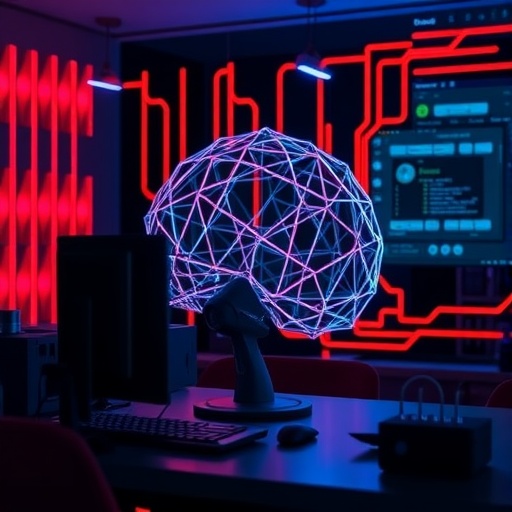The rapid advent of generative AI tools, such as GitHub Copilot and ChatGPT, is reshaping the landscape of computer science education, prompting crucial questions about trust and competency among undergraduate students. These AI-driven chatbots can autonomously generate code snippets and even complex programs, challenging traditional pedagogical approaches. A recent study spearheaded by researchers at the University of California San Diego delved into how computer science undergraduates calibrate their trust in these AI assistants and how educators might effectively integrate such tools into curricula without compromising foundational programming education.
During the study, a cohort of 71 junior and senior computer science students engaged with GitHub Copilot over several weeks. Initially, half of the participants were unfamiliar with the AI assistant. After an intensive 80-minute session introducing Copilot’s functionalities—centered on AI-driven code synthesis via large language models—students were encouraged to employ the tool across tasks of varying complexity. Early findings revealed a surge in students’ trust; approximately half reported heightened confidence in Copilot’s capabilities shortly after exposure. Yet, this initial enthusiasm presented only one facet of a more nuanced evolution in trust.
Extending beyond initial interactions, students embarked on a 10-day project involving modifications within a large-scale, open-source codebase. This endeavor aimed to emulate real-world programming challenges where understanding and navigating vast code structures is paramount. Throughout the project, students relied on Copilot to augment their coding, but reflections at the conclusion showed marked shifts in perception. Notably, around 39% expressed increased trust, while nearly 37% conveyed diminished confidence in the tool. Approximately a quarter reported no significant change in trust levels.
This bifurcation underscores the complexities of integrating AI assistants in programming education. While generative AI accelerates code production and potentially boosts productivity, it also exposes students to incorrect or suboptimal code outputs. AI tools occasionally generate syntax or logic errors and might embed vulnerabilities that could have serious security implications if uncritically accepted. Consequently, students recognized that mastery of programming principles remains indispensable, enabling them to critically evaluate AI suggestions and maintain rigorous debugging discipline.
From a pedagogical perspective, this insight advances the argument that to harness AI’s transformative potential, computer science curricula must evolve. Educators are challenged to craft learning experiences where students actively engage with AI assistants for a spectrum of coding tasks — from isolated algorithms to contributions within extensive, multifile projects. Such exposure not only calibrates expectations about AI’s strengths and limitations but also reinforces the necessity for students to retain and deepen their own coding proficiency.
Equally important is ensuring students develop the capacity to maintain comprehension, modification, testing, and debugging skills independent of AI assistance. This skillset is critical, as overreliance on AI can erode fundamental programming fluency, leaving graduates ill-prepared to scrutinize or improve AI-generated code in professional contexts. The researchers emphasize that understanding the underlying mechanics of AI outputs—rooted in natural language processing and probabilistic text generation—is vital for users to grasp why AI may produce flawed solutions under certain conditions.
Moreover, educators are encouraged to articulate and demonstrate practical techniques within AI tools that amplify their utility in managing large codebases. Features like contextual file inclusion and command keywords (“/explain”, “/fix”, “/docs”) can empower students to leverage AI effectively while comprehending the rationale behind the generated code. By framing AI as a collaborative partner rather than a replacement for human expertise, instruction can foster balanced trust that evolves with experience.
The study’s findings hold broader implications as generative AI assistants become ubiquitous in software development workflows. While immediate productivity gains are attractive, cultivating the discernment to critically assess AI contributions remains paramount in sustaining software quality and security. Graduates must emerge with the dual competencies of proficient standalone programming and adept interaction with intelligent tools.
Researchers plan to extend their inquiry with a larger sample size of 200 students in an upcoming winter quarter, aiming to refine recommendations and validate patterns across diverse educational settings. This scaling reflects the urgency of preparing the next generation of programmers to navigate an AI-augmented future responsibly and effectively.
Ultimately, this research reinforces that while AI assistants bring revolutionary capabilities to programming, they do not—and should not—replace the foundational knowledge and skills intrinsic to computer science education. Instead, these tools require a complementary pedagogical model that fosters judicious use, critical evaluation, and continuous learning, ensuring that emerging professionals remain both innovative and vigilant.
As AI continues to evolve, educators and institutions face the dual challenge of embracing novel technologies while preserving rigorous educational standards. Integrating AI programming assistants thoughtfully within curricula presents an unprecedented opportunity to enhance learning outcomes, propel innovation, and prepare students for a workforce in which human-AI collaboration becomes the norm.
The researchers’ work thereby provides a critical roadmap for the future of computer science education—one that aligns student trust with competence, leveraging generative AI to enrich, rather than undermine, the development of programming expertise.
Subject of Research: People
Article Title: Evolution of Programmers’ Trust in Generative AI Programming Assistants
News Publication Date: 11-Nov-2025
Web References: Evolution of Programmers’ Trust in Generative AI Programming Assistants (arXiv)
References:
Anshul Shah, Elena Tomson, Leo Porter, William G. Griswold, and Adalbert Gerald Soosai Raj. Department of Computer Science and Engineering, University of California San Diego
Thomas Rexin, North Carolina State University
Image Credits: University of California San Diego
Keywords: Generative AI, Artificial Intelligence, Computer Science, Education, Education Technology, Educational Methods




